
Students will discuss their pets and learn about the role of pets in French families.
- Subject:
- Languages
- Material Type:
- Activity/Lab
- Author:
- Mimi Fahnstrom
- Camille Daw
- Brenna McNeil
- Amber Hoye
- Date Added:
- 12/07/2020

Students will discuss their pets and learn about the role of pets in French families.

This course will provide students with an analytic framework to understand the roles that gender, race, and class play in defining and determining access to leadership and power in the U.S., especially in the context of the workplace. We will explore women and men in leadership positions within the corporate, political and non-profit sectors, with attention to the roles of women of color and immigrant women within this context. We will also look at specific policies such as affirmative action, parental leave, child-care policy, and working-time policies and the role they play–or could play–in achieving parity. We will further investigate ways in which these policies address gender, racial, and class inequities, and think critically about mechanisms for change. The course will be highly interactive, and will combine texts, theater, videos and visual arts.
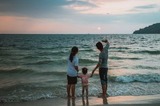
Students practice using their family-related vocabulary to build each other’s family trees.
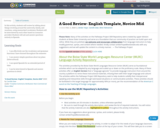
In this activity, students will review by talking about things revolving around the university, family, and vacations, using memorized vocabulary. Students will be interviewed by each other based on scenarios provided. Students will ask and answer questions entirely in Spanish.
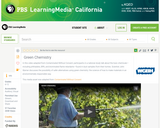
Learn about a study in which participants discovered contaminants in their homes, and how green chemistry may provide alternatives to such everyday toxins, in this video adapted from Contaminated Without Consent.

This course introduces diverse meanings and uses of the concept of culture with historical and contemporary examples from scholarship and popular media around the globe. It includes first-hand observations, synthesized histories and ethnographies, quantitative representations, and visual and fictionalized accounts of human experiences. Students conduct empirical research on cultural differences through the systematic observation of human interaction, employ methods of interpretative analysis, and practice convincing others of the accuracy of their findings.

The educational materials "Future Ready: Financial Literacy" provide an overview of influences on health choices, emphasizing the impact of family, friends, culture, media, and technology. It encourages critical thinking, self-perception, and the creation of personal mission statements. The materials also highlight the importance of embracing natural appearance and being conscientious of media consumption for overall well-being.
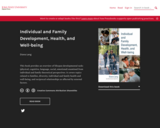
This book provides an overview of lifespan developmental tasks (physical, cognitive, language, social, emotional) examined from individual and family theoretical perspectives. It covers topics related to families, diversity, individual and family health and well-being, and reciprocal relationships as affected by external factors.
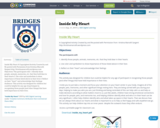
Inside My Heart
A Copyrighted Activity Created by and Re-posted with Permission from Kristina Marcelli Sargent http://kristinamarcelli.wordpress.com
Objectives:
The participants will:
1. Identify those people, animals, memories, etc. that they hold dear in their hearts
2. Use color and symbolism to show importance of those listed above in their lives
3. Reflect on their “heart” and acknowledge their feelings
Audience:
This activity was designed for children but could be helpful for any age of participant in recognizing those people (and other things) that have held importance in their lives.
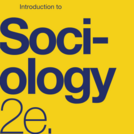
Introduction to Sociology 2e adheres to the scope and sequence of a typical, one-semester introductory sociology course. It offers comprehensive coverage of core concepts, foundational scholars, and emerging theories, which are supported by a wealth of engaging learning materials. The textbook presents detailed section reviews with rich questions, discussions that help students apply their knowledge, and features that draw learners into the discipline in meaningful ways. The second edition retains the book’s conceptual organization, aligning to most courses, and has been significantly updated to reflect the latest research and provide examples most relevant to today’s students. In order to help instructors transition to the revised version, the 2e changes are described within the preface.
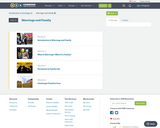
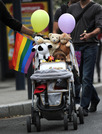
Describe society’s current understanding of familyRecognize changes in marriage and family patternsDifferentiate between lines of decent and residence
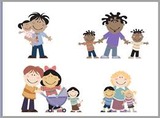
Describe society’s current understanding of familyDefine the sociological imagination and apply it to the study of familyIdentify two organizations that provide scholarly information about familiesName the cross-cultural functions of the family Recognize changes in marriage and family patternsDifferentiate between lines of decent and residence

Talking about different members of the family
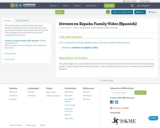
This activity aligns to an intermediate unit about families. Students watch then read a news story about young people in Spain living at home with their parents. They are guided with quotes from the video and comprehension questions.
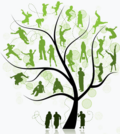
This is a fun assignment for Cultural Anthropology students. They can research one or both parents, and/or step parents.

This OER Lesson plan/unit was created by Masey Ringlein as part of the 2023 World Language OER Summer work and training. Educators worked with NDE staff to create OER Learning Plans and materials. The attached Lesson Plan is designed for 9 - 12 World Language Frech teachers for student learning of Novice low Learners of French. Students will listen to a story about a family and show their understanding of the text by answering comprehension questions. Students will illustrate the main events from the story to further show their understanding of the story. This Lesson Plan addresses the following NDE World Language Standard(s): NE WL 1.1, 1.2, 1.3It is expected that this Lesson Plan will take students 30 minutes to complete.
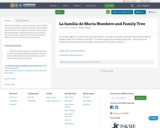
This activity aligns to a novice-level unit about families. It focuses on numbers and basic family relationships as students listen to an authentic audio file, then further learning through compiling a family tree as a group. Two versions are included: One with instructions in English, and one with instructions in Spanish.
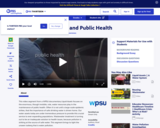
This video segment from a WPSU documentary Liquid Assets connects public health to the availability of clean and safe drinking water and elaborates on the threats our bodies face due to increasing kinds and quantities of pollutants.

This course examines how a variety of cultural traditions propose answers to the question of how to live a meaningful life. It considers the meaning of life, not as a philosophical abstraction, but as a question that individuals grapple with in their daily lives, facing difficult decisions between meeting and defying cultural expectations. The course also provides tools for thinking about moral decisions as social and historical practices, and permits students to compare and contextualize the ways people in different times and places approach fundamental ethical concerns.